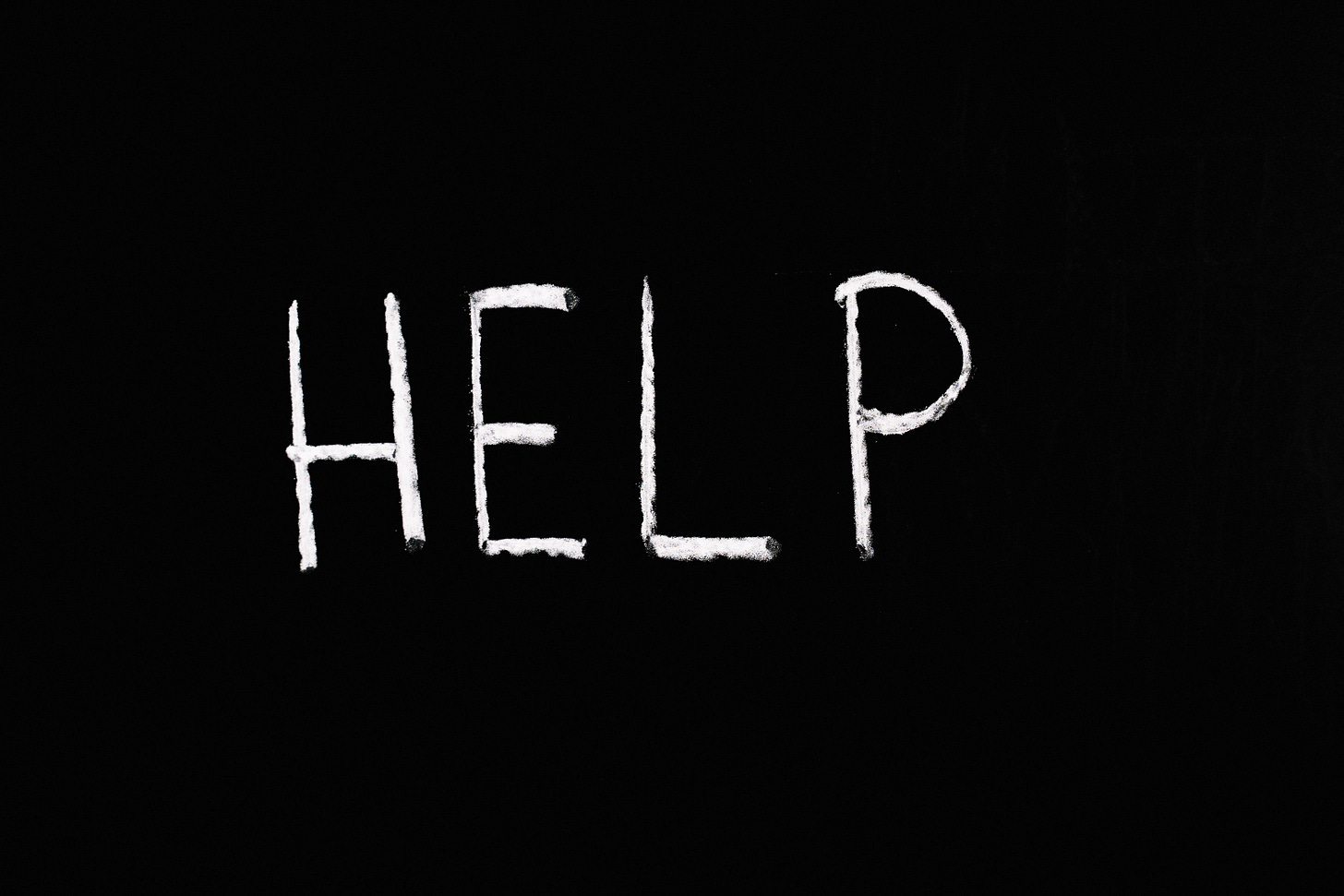Gate-Keeping is Gross (it's also exclusionary and elitist): Self-Identified Autistic and Other NeuroDivergent Humans are Valid
I am diagnosed Autistic and ADHD, but I didn’t magically become Autistic, and ADHD when I was diagnosed, and my diagnosis is NOT what makes me Autistic and ADHD (AuDHD).
I was diagnosed Autistic at the age of twenty-nine.
Though I wasn’t “officially” recognized on paper until I was almost thirty, I was Autistic even before receiving this diagnosis of a “person with Autism.”
I also have ADHD, which wasn’t diagnosed until a few years later. Like my Autism, ADHD has also been around my entire life.
I am privileged that I could access an Autism and an ADHD diagnosis without it posing risks to my safety and livelihood, but not everyone has that privilege.
My “rubber stamp” and my privilege does not make me more Autistic and ADHD than anyone else who is unable (or chooses not to access) diagnostic services for their NeuroDivergence.
Who am I to judge people who cannot (or do not wish to) take the risks I’ve taken (or do not have the same financial means as I did)?
Who am I to gate-keep people simply looking for answers and trying to survive?
It is not like I magically became Autistic and ADHD when I was diagnosed. My diagnosis is NOT what makes me Autistic and ADHD (AuDHD) - my brain is.
People who self-identify as Autistic (or any other NeuroType) don’t take anything away from me, a “formally diagnosed” Autistic/NeuroDivergent Person.
I was Autistic and ADHD even when I didn’t have the “official” medical stamp on my record.
The confirmation didn’t make me AuDHD, it gave me the confidence to admit the truth to myself (and everyone else) - a truth that should have been glaringly obvious for most of my life (but wasn’t, thanks to ableism and stigma).
One of the main reasons I wasn’t tested for learning disabilities in elementary school (despite showing obvious signs of struggle in the classroom) was fear of my family that the state might use the results of such tests against us (forcing care for me that my family felt was inappropriate and might not be able to refuse).
Schools in Texas have a long history of reporting parents to CPS for failing to comply with administering ADHD medications as “medical neglect,” regardless of what the child or parents want (because unmedicated ADHDers are “a disruption” to the class environment).
Growing up, I knew other ADHDers in school who didn’t want to be on medications due to how the medications made them feel but had no choice (because the school or their parents forced them).
I also knew some ADHDers who LOVED being medicated.
While these medications can be life-changing for many people, what scared me (and my guardians) was the possibility of forced medicalization (and the removal of choice from the equation).
In Texas, forced medicalization has been a problem for generations (and still happens even today, even though schools are no longer supposed to have this power, many parents do not know their rights).
Many can’t fight claims of medical neglect bought by school psychologists, doctors, and CPS.
For ADHD, it is medications; for Autism, it is ABA.
Often the state systems, intended to provide help and assistance, are weaponized against impoverished and marginalized people. - I promise we’ll return to “Texas” before wrapping this one up.
This weaponization creates shame and stigma around mental health conditions because admitting them could be used against you - so you act like everything is fine even when it’s not.
The risk is worse if you are low-income or multiply marginalized (especially if you lack the resources to fight back).
Those of us who grew up with parents who were afraid of what the state might do if we were “officially labeled” missed out on the chance to be identified sooner (because being identified young would have been too dangerous for us).
Instead of labeled Autistic, Hyperlexic, Anxious, and ADHD, I was labeled “sensitive, stubborn, gifted, lazy, rebellious, naughty” (and much worse).
Eventually, I was at my breaking point. I needed help so badly I could no longer pretend everything was fine and submitted myself to the specialist I’d been referred to for an Autism assessment.
I might not have gone down the formal assessment route if I had not reached this crisis point.
In that moment of desperation, my mind was opened to the possibilities (that I’d been denying since it was first suggested in elementary school) that I might have a developmental disability (or a few), aka I might be NeuroDivergent.
I was almost thirty when I was diagnosed Autistic, and my ADHD wasn’t identified until I was in my mid-thirties. Still, I’ve met people who are learning about their various forms of NeuroDivergence in their 40s,50s, 60s, 70s, and beyond.
Many people who are coping well and have lived many years on earth without a formal diagnosis (even if they are certain of their NeuroTypes/brain types) are hesitant to undergo formal evaluations (which may or may not open them up to discrimination in the future).
The realization that I was not okay and I needed support to survive in this world is one of the main things that led me to seek a formal assessment.
I was at a point in my life where I knew I could not move forward any further in my career (and was falling behind) without being able to modify my environment (or, as the ADA puts it, without requesting reasonable accommodations).
If I hadn’t been seeing workplace adjustments (that my employer at the time ended up refusing anyway because I am “so high functioning”), I likely would not have decided to pursue formally documenting my Autism on paper for a multitude of reasons:
The risk of discrimination/worry over my autonomy being denied
Concerns over how it will impact my access to healthcare in the future (especially if pre-existing conditions exemptions come back in the US) - MORE
Countries that won’t let Autistic People Immigrate into them if I one day need to leave the US
General dislike of how NeuroDivergence is pathologized and medicalized
The out-of-pocket price of adult diagnosis (that insurance doesn’t always cover)
Some people who know without a doubt they are Autistic (or some other NeuroType) will opt to avoid diagnosis for other reasons.
Many do not see the value in receiving an expensive ($1000-$5000) second opinion late in life (especially if we’re already living in poverty, as many Autistic and other NeuroDivergent People are).
Some people who really want a diagnosis cannot access it even though they want it more than anything.
For those of us who missed the opportunity to be tested as children (when the schools or insurance would have covered the assessment costs), many of us now face difficult choices and large financial obstacles to diagnosis (if we desire to go that route).
Many of us cannot afford a diagnosis (because we are more likely to be under or unemployed - especially Autistics).
I was able to pay my assessment off on a payment plan. That alone is a privilege many do not have.
My Autism evaluation specifically examined my childhood.
Being Autistic can make keeping up with relationships difficult.
For an Autism diagnosis, we may not have the records required or access to people who can speak to how we were growing up (especially if those people are no longer with us or if we lost touch with them).
I’m lucky the people who knew me as a child were still alive, willing, and able to talk to someone about my childhood (considering how closed off they’d been to it when I was in school).
I’m also privileged that my grandparents had a video camera with many baby videos of me that I could use as evidence in my assessment.
I’m privileged that my Autistic presentation was close enough to the stereotypes of a cis, white male (that the DSM Autism profile was designed after), making my Autism easy to spot (once I was willing to entertain it as a possibility).
Paid subscribers have access to the rest of this post (talking about more of the struggles of Monotropism) as thanks for their support.
Keep reading with a 7-day free trial
Subscribe to NeuroDivergent Rebel’s Substack to keep reading this post and get 7 days of free access to the full post archives.







